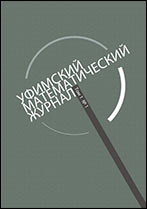|
This article is cited in 1 scientific paper (total in 1 paper)
On least type of entire function with given subsequence of zeros
G. G. Braicheva, O. V. Sherstyukovab
a Moscow State Pedagogical University
b ГБОУ Школа № 1579,
Каширское шоссе, 55, корп. 7,
115211, г. Москва, Россия
Abstract:
This note is based on the authors' report on International Scientific Conference “Ufa Autumn Mathematical School – 2021”. We discuss the following problem. Let we are given a non-integer number $\rho>0$ and a sequence of complex numbers $\Lambda$ having a finite upper $\rho$-density. Then, as it is known by the classical Lindelöf theorem, there exists a
(not identically zero) entire function $f$ of a finite type of the order $\rho$, for which $\Lambda$ is a sequence of all its zeroes. The question is how much can the type of such function change if, apart of the elements in $\Lambda$, it can have other zeroes of an arbitrary multiplicity. We show the possibilities of applying one general theorem proved by B.N. Khabibullin in 2009.
In order to do this we use recent results containing the exact formulae for calculating extremal type in classes of entire functions with various restrictions on the distribution of zeroes. The case of entire $\rho$ possesses certain features and in this work we almost not consider it.
Keywords:
entire function, sequence of zeroes, subsequence of zeroes, type of entire function, extremal problem.
Received: 04.04.2022
Citation:
G. G. Braichev, O. V. Sherstyukova, “On least type of entire function with given subsequence of zeros”, Ufa Math. J., 14:3 (2022), 17–21
Linking options:
https://www.mathnet.ru/eng/ufa617https://doi.org/10.13108/2022-14-3-17 https://www.mathnet.ru/eng/ufa/v14/i3/p17
|

| Statistics & downloads: |
| Abstract page: | 126 | | Russian version PDF: | 45 | | English version PDF: | 11 | | References: | 20 |
|




 Contact us:
Contact us: Terms of Use
Terms of Use
 Registration to the website
Registration to the website Logotypes
Logotypes








 Citation in format
Citation in format 
